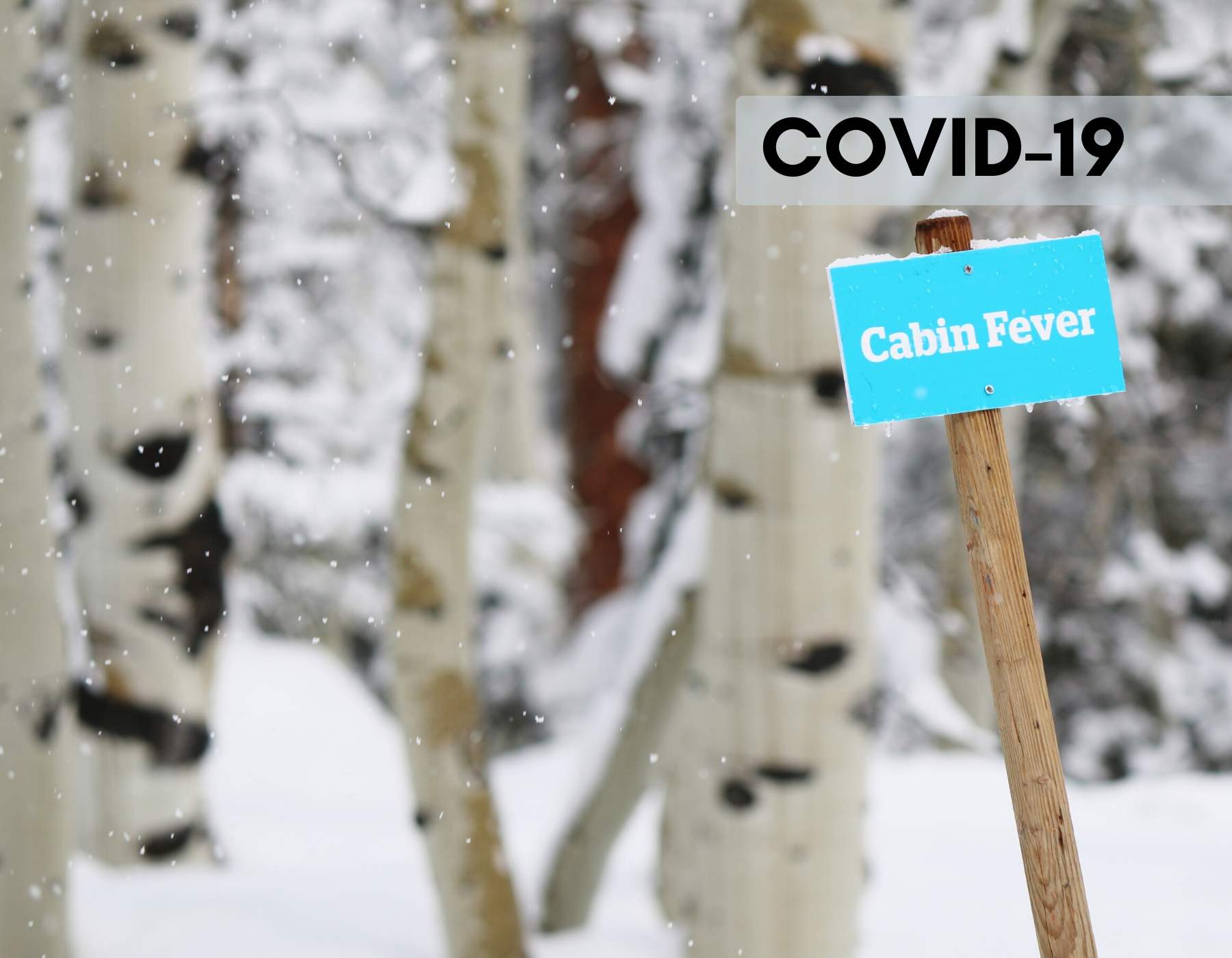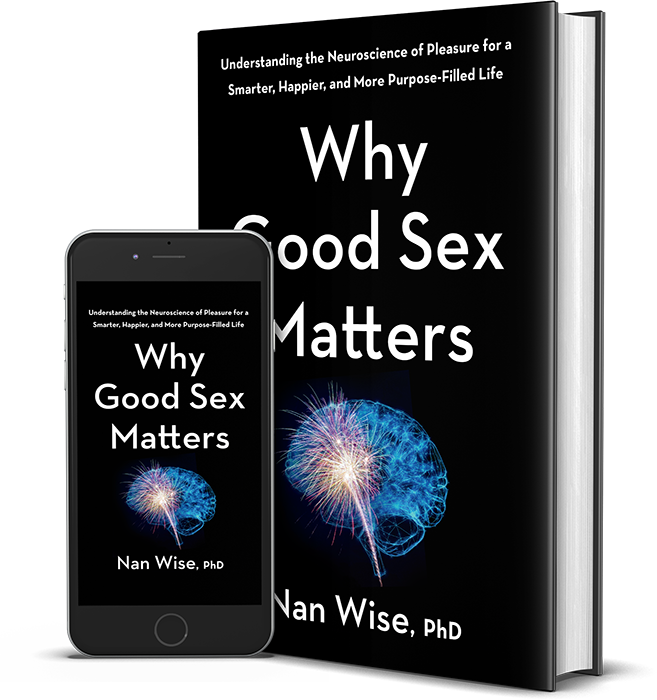Before we address how the coronavirus crisis may impact our mental and physical health, let’s take a moment for a reality check.
Before coronavirus, what was the state of our wellbeing? For starters, we haven’t exactly been thriving. If we’re being honest our overall wellbeing wasn’t great going into this challenge.
As I’ve written in my book, Why Good Sex Matters; Understanding the Neuroscience of Pleasure for a Smarter, Happier, and More Purpose-Filled Life, we’ve already been suffering from a plague of stress-related physical and mental disorders.
Before the coronavirus, people were more anxious and depressed than ever. In fact, depression had become the number one cause of illness and disability worldwide. Topping it off, our sex lives have been in a deep recession.
The coronavirus pandemic provides us with the opportunity for a big wake -up call We simply cannot continue doing our business status quo. Literally and figuratively.
Our Repetitive Habits Are Running Our Lives
It’s fair to say we’ve been bogged down by habits. We wake up to a cup of coffee consumed while we stare into devices. We exist in a blurred buzz of continuously divided attention scattered across the day. Throughout the daze, we remain plugged in. And this comes at a cost. According to the Psychological Association’s poll, remaining on perpetual standby as we await the next notification, beep, text, message, or call has been associated with significantly higher levels of stress.
Even as we run around like chickens without a head, we’re moving our bodies less than ever. We are sedentary. We eat more food than we need. Evidence? 71.6% of Americans over the age of 20 are overweight. And we’re having less sex than ever. The General Social Survey (2018), a representative survey of Americans over 18 years of age, reported that a whopping 23% of adults had no sex in the previous year.
As difficult as this coronavirus challenge is –and it is indeed scary to be encountering the single biggest health challenge of our lifetime–perhaps of any lifetime- it presents us with an opportunity to take inventory. The potential of being infected with this virus should be stopping us dead in our tracks.
This is how we can actively cope to limit it’s spread. When forced to interrupt our everyday habits by staying home, we can seize this opportunity to re-evaluate how we conduct our lives. It’s a good time to intentionally change things up. But can we? Will we be too stressed out by coronavirus cabin fever?
Coping with Coronavirus Cabin Fever at Home? Here are my Tips!
There’s been a whole lot of discussion about the potential of us going nuts from being on lockdown. How will we cope with staying home, possibly for months to come? What about the dangers of cabin fever?
For starters, what is cabin fever?
It’s a folk term, not a psychological diagnosis. The first mention of the malady goes back to North America in the early 1900s when people were trapped in small cabins in severe winter weather. Cabin fever was synonymous with isolation and claustrophobia. It has historically plagued people on expeditions and polar researchers cooped up for months at a time without contact with the outside world. Under the influence of cabin fever people were known to go “stir crazy” and bonkers.
What Characterizes Cabin Fever?
Symptoms included “dissatisfaction at home, restlessness, boredom, irritability, and needing to break routine”. Kind of sounds like the average teenager on the weekend, no?
How Did Folks Cope?
The most common strategies involved a change of scene. When not physically possible, this change could be psychological. Escaping with a good book or by digging into a hobby could be helpful. How we frame things makes a huge difference. If we consider staying home as a way that we can help ourselves and each other, that’s active coping, not passive confinement.
Labeling the Condition Seemed Useful
It was said that simply acknowledging that people got cabin fever helped. It allowed the sufferers to understand their symptoms as a reaction to the circumstances of isolation and gave them a sense of control. Knowledge is power. So, let’s dig in.
How does the coronavirus challenge differ from cabin fever? For starters, we are not stuck in the house.
Fortunately, the coronavirus challenge comes at a time when the weather is improving, and it is indeed safe to be outdoors in fresh air and sun as long as we keep our distance from each other. Fresh air and sunlight are exactly what we need to counter claustrophobia and reduce our anxiety and distress. Most of us simply don’t spend enough time outside. In fact, we spend upwards of 90% of our lives indoors.
One of the main issues driving our baseline poor moods and perpetual sleep problems is that we simply don’t get enough natural sunlight. When we go outside, natural sunlight finds its way from the back of the eye (via the retinohypothalamic pathway) to the hypothalamus and then onto the pineal gland. This light source is what regulates our circadian rhythms which are physical, mental and behavioral changes that impact sleep-wake cycles, hormone release, mood regulation, eating habits, digestion, and body temperature.
This lack of sunlight no doubt contributes to a cascade of health issues ranging from sleep disorders to obesity to depression to diabetes and lord knows what else.
It’s no surprise that we are massively messed up from this lack of natural light which is critical to the proper functioning of our brain/bodies. And another point, we are anything but isolated (unless we choose to be!).
Cabin fever was predicated on isolation. Alone in the woods surrounded by snow and ice. Coronavirus version? Yes, we will need to stay at home for as long as it takes. But even those of us who live alone, are we truly isolated?
Isolation is often a function of being so plugged into our devices that we remain alone in a room full of people. Watching people out in the world, I was always astounded by the number of people walking the streets with eyeballs glues to their phones.
People no longer chat at the gym or while in an elevator. The casual yet nourishing conversations with strangers at bus stops or cafes of yesteryear have been replaced by the iPhone wearing urbanites equipped with newfangled blue tooth headsets engaged in remote activities in a kind of parallel play, side by side.
In reality, there are tons of ways that we can stay truly connected. We can do it IRL with people in the room. We can do it remotely through a plethora of free virtual modalities that give us the astounding ability to meet if not flesh to flesh, but face to face with just about anyone fortunate to own a phone or computer.
Isolation these days is a state of mind. We can intentionally connect with others in a way that is satisfying if we pay attention to people and use our devices to actually talk to each other.
Current Coronavirus Challenge: Operating our Wired-in Emotional Systems
Understanding how our emotional brains are wired will help us manage the coronavirus challenge more effectively. As I discuss in my book, we have seven core emotional systems wired into our mammalian brains. These systems were designed to drive us to fulfill our needs and stay away from dangers.
The 7 Core Emotional Systems
The SEEKING system, which is the predominant system, manages and regulates the other systems. Our SEEKING systems are powered by the neurotransmitter dopamine. This is the system that drives our attention, keeps us focused on what we pursue. It is also the system that can get hijacked by our devices and chasing the buzz rather than finding true satisfaction with and through our connections.
The other systems fall into two categories: the defensive emotions (FEAR, RAGE, PANIC/GRIEF), which protect our survival by cueing us about potential threats or danger from outside ourselves; and the affiliative emotions (LUST, CARE, PLAY), which ensure our survival by driving us to connect through relationships with people (a reminder that we cannot survive alone). Together these seven core emotional states are wired into our human DNA.
As you might imagine, the coronavirus challenge is something that will tweak our defensive systems as we are triggered into fear, rage or panic.
As our the more affiliative emotions are critical to our maintaining good mental and physical health during times of stress, maximizing our ability to connect through care, play and lust can feel good and be good for us. In other words, healthy forms of pleasure or “hedonism” are not a luxury during times of crisis, but a necessity for our ongoing physical and emotional wellbeing.
Here’s My Starter Schedule To Habit Bust Your Day
- Wake up and drink your coffee/tea while talking to another person, preferably one in the room. Leave your phone, TV, and other devices off for at least the first half-hour you are awake. This will keep your SEEKING system from getting hijacked by too much information and will let you set the tone for the day.
- If you live alone, FaceTime or WhatsApp another actual human being and start by discussing how you are managing your new lifestyle. Make good use of your SEEKING system to seek connection.
- Walk outside for 15 minutes at least two times per day.
- If you can’t walk outside go by a window and jog in place until you feel a bit sweaty. If you can’t jog in place, walk in place. If you can’t walk in place, sit by the window and chair dance.
- After the first round of walking, sit down for your executive decision-making time.
- A helpful strategy involves creating a time management matrix that lets you ponder what tasks are both urgent and important, what is urgent but not so important, what is important but not so urgent, and what is neither.
- Creating a structure for your day fosters a sense of personal control and mastery. Make sure to schedule something purposeful and something pleasurable. Extra points if you can find an activity that is both.
- Eat more simply. And don’t eat alone or while watching TV.
- When we simplify our meals (and we could all use to eat fewer calories overall), we get an opportunity to savor the act of eating. And eat with someone else. If you are living alone, arrange to eat virtually with a pal. Meals shared are more nourishing.
- Create a new “normal”.
- Living with the uncertainty of how and for how long this virus will affect us is not easy for us humans.
- One way to create a new normal is to set up a regular daily meeting with your friends/family to create a new habit of connection and intentionality.
- You can take turns listening to each other. You can complain, discharge distress, or share your high points and low points of the day.
- You can set goals, ask for help, and otherwise share the experience. One fun way to do this is a group chat via FaceTime or WhatsApp
- And last but not least: Remember that we human beings are resilient, adaptable, and resourceful.
- We can and will deal with this challenge.
- We can and will rise to the occasion of being the cooperative, kind, and empathic creatures that we are capable of being.
It all starts with managing our fear and eliciting our ability to calm ourselves with and through our social connections. We are in this together. Let’s do this! If you enjoyed this article, I’d love to hear from you! DM or comment on my IG or FB if you have any other concerns or questions. I’m here for you. ????




